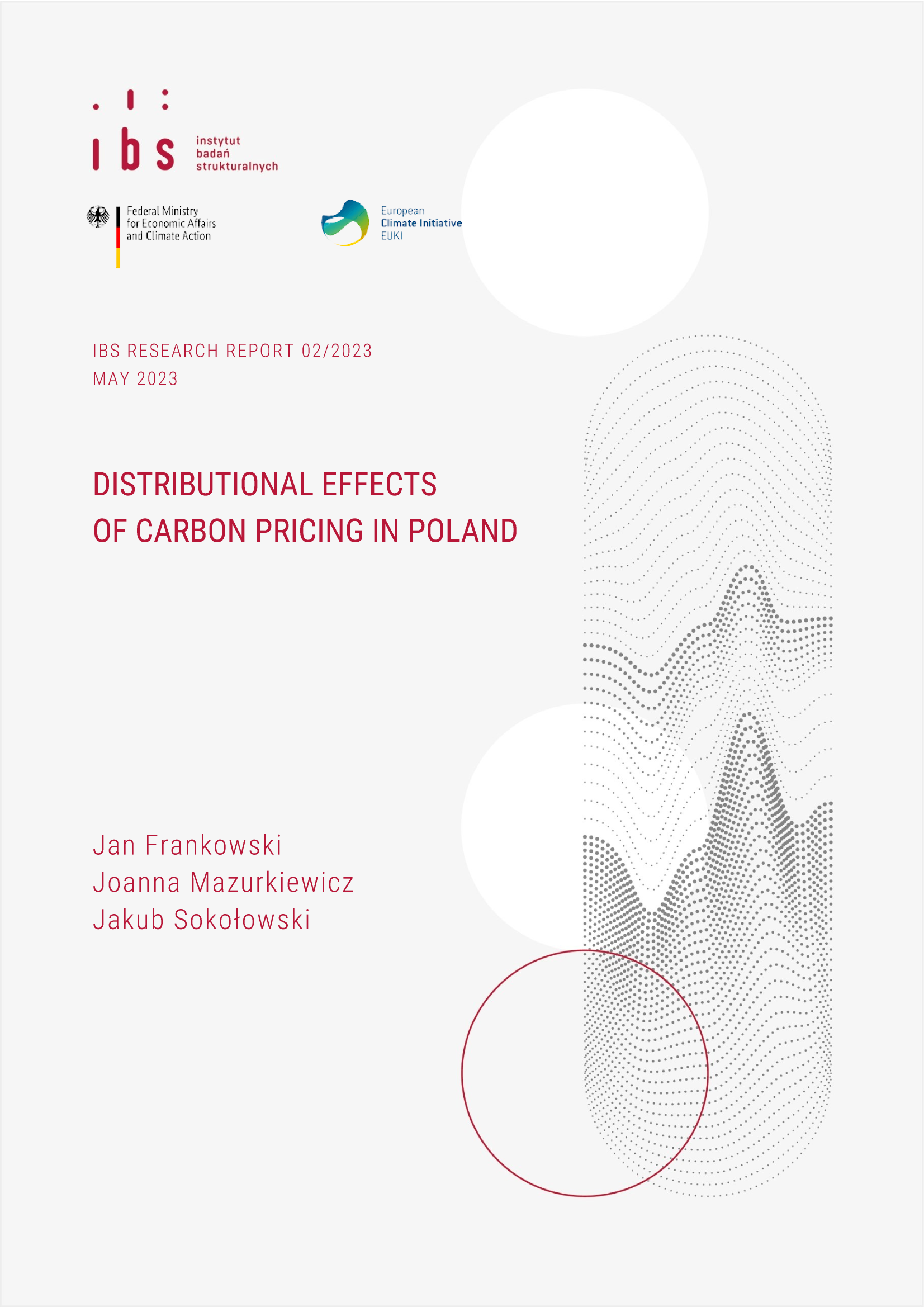The report aims to indicate the potential effects of climate policy and point out mechanisms to reduce inequalities caused by increased energy prices. Based on the macroeconomic model and microsimulation, we present the effects of carbon pricing and its consequences for economic sectors and households within a ten-year horizon. We indicate that carbon tax uptake would reduce the value added generated by the service sector and industry employment. In the case of households, households in Poland in the 2033 perspective will lose 2% of their income compared to the scenario without introducing the carbon tax on average and distributional effects would be regressive. To counteract the inequalities that can be introduced by carbon pricing, we argue for redistribution mechanisms in the form of direct cash transfers for low-income households combined with incentives to undertake pro-climatic investments. Such actions will allow both to support climate policy goals and reduce the risk of increasing social inequalities.

This report is part of the European Climate Initiative (EUKI). EUKI is a project financing instrument by the Federal Ministry for Economic Affairs and Climate Action (BMWK). The EUKI competition for project ideas is implemented by the Deutsche Gesellschaft für Internationale Zusammenarbeit (GIZ) GmbH. It is the overarching goal of the EUKI to foster climate cooperation within the European Union (EU) in order to mitigate greenhouse gas emissions. This report uses data from Statistics Poland. Statistics Poland has no responsibility for the results and conclusions presented in this report, which are those of its authors. The usual disclaimers apply. All errors are ours.

